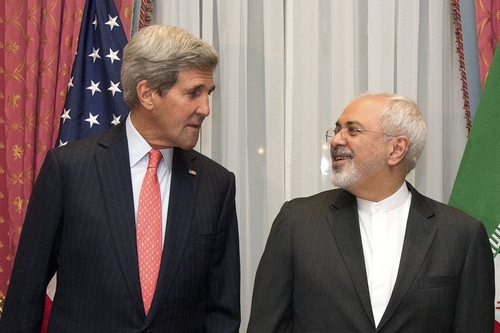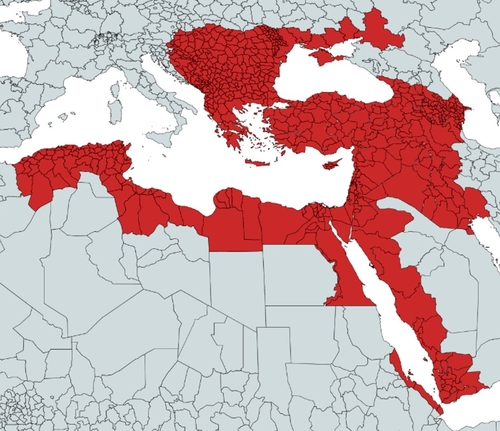Global Review: Is it correct that, since the defeat of the Islamic State, Islamism is no longer central to U.S. foreign policy. If so, is that a smart shift?
Daniel Pipes: Yes, it is correct that in both foreign and domestic policy, Islamism has become far less central than it was in the period 2001-16. In part, this has to do with the retreat of ISIS. More importantly, jihadi violence has mostly ended, while China, the Global Left, and COVID-19 have come to dominate the news. No, this is not a smart shift; Islamism remains a great ideological threat.

GR: Trump focuses especially on China and Iran. Do you agree with that emphasis?
DP: Yes, those are primary threats, along with North Korea, Russia, Turkey, and Venezuela. My main criticism of Trump's policy toward these hostile regimes concerns his strangely warm relations with Recep Tayyip Erdoğan of Turkey.
GR: John Mearsheimer holds that a weakened Russia faces a choice to submit to China, Turkey, or to the West; your reaction? Is a Western-Russian alliance against Islamism an option?
DP: Russia is in decline mainly because its main resource (oil and gas) and its population are both in retreat. I agree about Moscow facing a choice of China and the West; but Turkey is a minor power and not an option. Yes, with a different leadership in Moscow, the West and Russia could ally versus Islamism.
GR: Can the Trump-Netanyahu approach of building an anti-Tehran alliance of Muslim states succeed?
DP: Barack Obama's awful JCPOA (the Iran deal) had the silver lining of waking many Sunni Arab leaders to the Iranian threat. Once they did, Israel's role for them changed from enemy of the Palestinians to friend vis-à-vis Iran. The approach has limits, but it has potential; I look forward to hearing that Saudi Crown Prince Mohammad bin Salman has landed in Israel.
GR: Is the U.S. "maximum pressure" campaign against the mullahs working? How can it be improved?
DP: It has worked in seriously damaging the Iranian economy and limiting the regime's means to pursue aggressive policies; it has not succeeded in hurting the regime's hold on power or changing those aggressive policies. If Trump is re-elected, that could happen. If not, the mullahs will be very happy.
 The mullahs will be very happy if Joe Biden is elected president, as will their foreign minister, Mohammad Javad Zarif (right above, talking to then-U.S. Secretary of State John Kerry in 2015). |
GR: Can a nuclear-armed Iran be contained, given the overwhelmingly stronger American and Israeli arsenals?
DP: No, one cannot count on the rulers in Tehran being rational actors. For example, the mahdaviat mentality could prompt them to initiate a nuclear conflagration. They must not acquire nuclear weapons.
GR: Is the danger of a nuclear Iran more primarily about its threat to Israel or its threat to nuclear proliferation?
DP: The threat to Israel and to many other countries is far more immediate than nuclear non-proliferation.
GR: Would Erdoğan fit better into the Russia- and China-dominated Shanghai Cooperation Organisation than in NATO?
DP: He certainly would. I hope the switch takes place, for that would both permit NATO to see Turkey as an opponent and for it to target Islamism as an enemy.
GR: What do you think of the theory of two Islamist belts: Erdoğan's northern one reaching from Libya to Syria to the Balkans to the Caucasus and the southern ISIS one from Nigeria to Somalia?
DP: That does not quite describe reality. Where is the Iranian belt? What about close Turkish relations with Pakistan and Malaysia?
GR: Could Erdoğan's neo-Ottoman Empire become as large as the old Ottoman Empire?
DP: "Neo-Ottoman Empire" is an undefined term. If you mean by it influence over (as opposed to controlling) a region then, no, it cannot be achieved. Erdoğan alienates practically everyone, with the minor exceptions of Azerbaijan, Qatar, and some Islamist groups.
 The Ottoman Empire at its peak. |
GR: Does Erdoğan's Turkey, sitting in the middle of the Greater Middle East, compare with the German Reich in the middle of Europe?
DP: It does not. Turkey as a state only has existed for one century, during which it has faced no circumstances comparable to those of the German Reich. Twenty years ago, the country had no enemies; now, thanks to Erdoğan's aggression and ineptitude, it is surrounded by them. Change the foreign policy back and those enemies will again disappear.
GR: Is the Islamization of the West possible given that Muslims are a marginal minority and many of them are secular and moderate?
DP: Compare birth rates in the West with those in Africa and you see that it is not just possible, but probable.
GR: You see political parties such as the National Rally in France, PiS in Poland, and Fidesz in Hungary as preventing Islamization of the West; is that not sacrificing democracy for a theoretical possibility?
DP: Three points in response: One, as I previously replied, this is not theoretical but probable. Two, while these parties have much to be criticized, characterizing them as anti-democratic is malicious speculation. Three, their opponents are worse; let me offer the timely example of the Italian Senate voting to strip Matteo Salvini of his immunity so that this former interior minister can be put on trial, just started, for "kidnapping" because he refused to allow a boatload of illegal migrants to enter the country. Just who is anti-democratic?
GR: Will Macron's major speech on Islam on Oct. 2 have an impact on French policy? Or on that of other European countries?
DP: A poll by Le Figaro newspaper found that three-quarters of the French public is skeptical that the speech will make a difference; I concur. David Cameron also gave fine speeches that did not amount to anything. An impact abroad? If the speech fails to affect France, it surely will not influence other countries.
